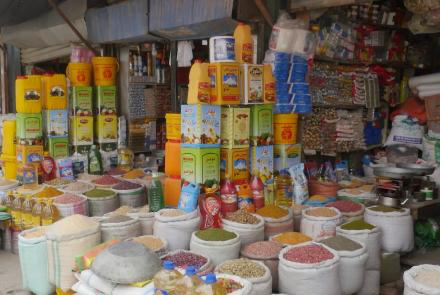Increase in Dollar Value Impacting Food Prices

In the past week, the value of the US dollar has increased by 6 afghani against the Afghan currency.
This rise has affected food prices. Noor Ahmad Agha, the acting head of the Central Bank, has met with representatives of the Money Exchangers’ Union to maintain the stability of the afghani, prevent currency smuggling, and encourage the use of the afghani in daily transactions.
Noor Ahmad Agha has urged citizens to use afghani in their daily transactions to maintain currency stability. He stated: “I ask our dear citizens to consider their national responsibility and use afghani in trade and not to pay attention to baseless rumors.”
Currently, one US dollar is exchanged at 78.7 Afghanis in the country’s markets.
It is believed that the 90-day suspension of US foreign development aid to countries worldwide, particularly Afghanistan, has contributed to the rise in the dollar’s value. Yesterday, the US State Department also issued an order to halt these aid programs.
Abdul Ghafar Faizi Zadran, the spokesperson for the Sarai Shahzada Exchange Market in Kabul, stated: “During the winter, our trade declines, and another reason is that if any changes occur in the Western world or the US, such as the transition of power from Biden to Trump, opportunists and economic mafias take full advantage of the situation.”
The price increase is not limited to the dollar; the prices of essential goods have also risen:
Type of Commodity Price Last Week Current Price
Sack of flour 1,350 Afs 1,560 Afs
Sack of rice 2,230 Afs 2,550 Afs
One liter of oil 100 Afs 108 Afs
One liter of fuel 58 Afs 62 Afs
One liter of Gas 55 Afs 60 Afs
Abdul Wudood, a shopkeeper, commented on the rising prices of essential goods: “We used to buy a tin of cooking oil for 1750 to 1800 afghani, but now it costs us over 2000 afghani.”
Some Kabul residents facing economic hardships have urged authorities to take serious measures to control the dollar price and food costs in the market.
“Everyone you ask says the dollar has gone up. A tin of oil that was 1850 afghani is now 2000 afghani, and a sack of flour that was 1450 is now 1650 afghani. The price of fuel has risen to 62 afghani, and gas to 60 afghani. People’s situation has become very difficult,” Zakaria, a Kabul resident, told .
“Our demand is that the dollar price has gone too high, and we cannot afford our expenses. The dollar rate must decrease so we can manage our costs,” said Allah Mohammad, another resident.
Despite the Central Bank injecting $38 million into the market in the past week, this measure has had little effect on lowering the dollar price, which continues to rise.
The Central Bank is expected to auction another $25 million tomorrow to control the market.



